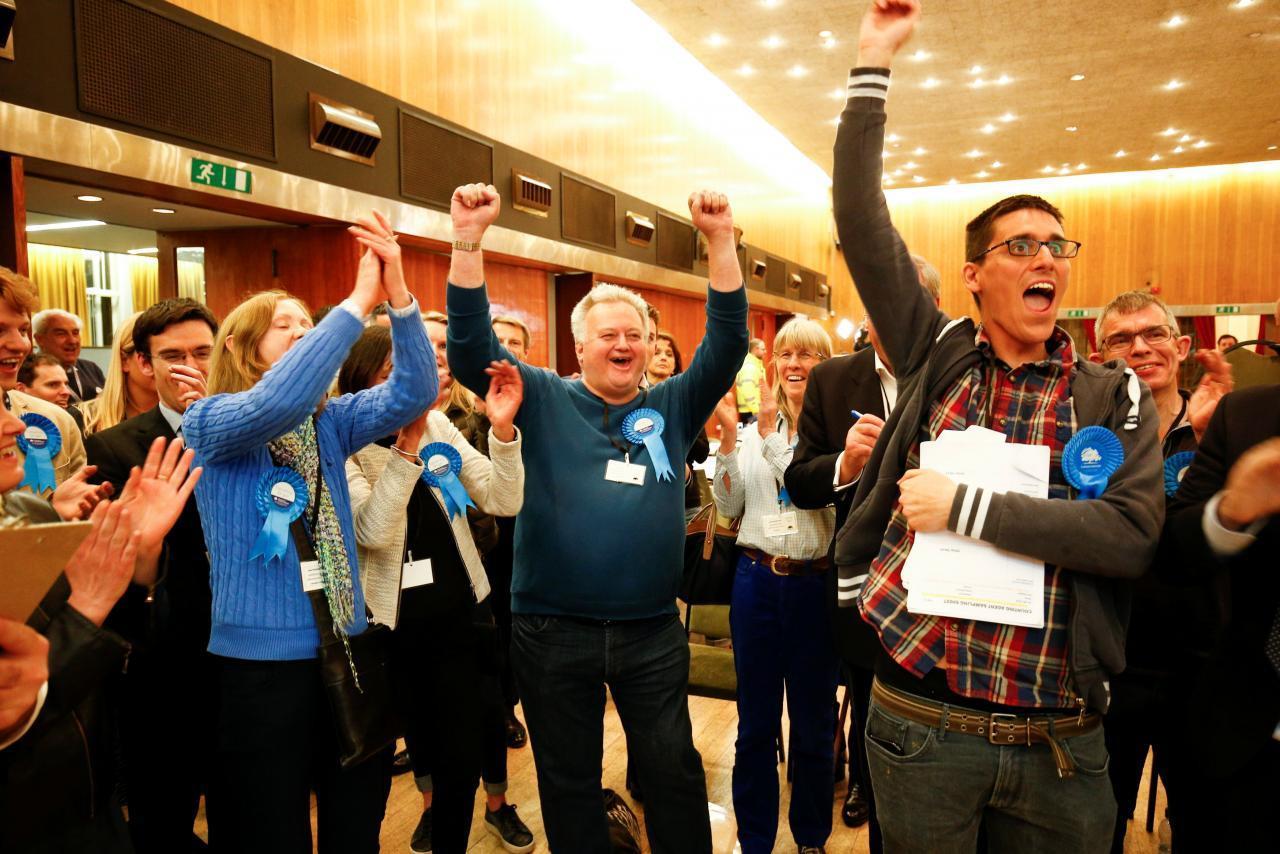UK PM May avoids London wipeout in local elections
LONDON – Reuters

Prime Minister Theresa May’s Conservative Party avoided a wipeout in London local elections and eked out gains in Brexit-supporting regions elsewhere, results on May 4 showed, denting the opposition Labour Party’s hopes of a big win.
The elections are viewed as a gauge of public support for May as she faces a possible revolt in parliament over her strategy for leaving the European Union.
Results showed May was likely to avoid the kind of widespread losses that would dramatically weaken her authority over Conservative lawmakers ahead of key tests of her plans to take Britain out of the EU customs union as it quits the EU.
“The Conservative Party has been reminded tonight that the electorate that it now has is disproportionately a ‘Leave’ electorate,” polling expert John Curtice told the BBC.
“Therefore, above all, it seems to me that what the Conservative Party has to be able to do in the coming weeks and months is to deliver on Brexit in a way that will satisfy the aspirations of ‘Leave’ voters,” he said.
Against a backdrop of heightened expectations for the Labour Party, the ballot also showed the limitations of its recent resurgence under veteran socialist Jeremy Corbyn.
May’s party held on to control of Wandsworth council - a low-tax Conservative stronghold since the time of late Prime Minister Margaret Thatcher. The council had been one of Labour’s more ambitious targets in May 3’s vote and one it campaigned heavily to win.
“There, at the moment, isn’t really very much for the Labour Party to crow about ... it basically has come away frankly empty-handed relative to the expectation that it at least helped to build up,” Curtice said.
Voting decides more than 4,400 council seats, determining the makeup of 150 local government authorities who are responsible for the day-to-day provision of public services.
They do not affect seats in parliament, where May has only a slim working majority thanks to a deal with a smaller party.
The Conservatives also held the symbolic council of Westminster, London’s political district, indicating that the final scale of losses in the capital would come in at the lower end of the predicted range.
Despite retaining overall control, the Conservatives lost individual seats in Westminster and Wandsworth.
Ruling parties typically suffer losses at local elections and opinion polls had predicted a bad night in London for the Conservatives after eight years in power. May is also negotiating an exit from the EU that 60 percent of the capital rejected at the 2016 Brexit referendum.
Results elsewhere in London’s 32 boroughs showed the forecast swing to Labour in the capital had materialized, although not strongly enough to inflict the heavy losses that would pose a serious headache for May.
Corbyn has endured fierce criticism in recent weeks over the handling of anti-Semitism within his party. Critics also say he misjudged his response to military action in Syria and a row with Moscow over the poisoning of a former Russian spy in southern England.
Despite intensive campaigning, Labour did not take overall control of Barnet, a borough previously thought to be easily winnable. May’s Conservatives won back control of the borough, which has the largest Jewish population of any single council area in the country.
Outside London, the Conservatives regained control of councils in the pro-Brexit regions of Peterborough and Basildon, largely at the expense of the anti-EU UK Independence Party (UKIP).
UKIP has suffered leadership issues and struggled for a new purpose since achieving its primary political aim at the 2016 Brexit referendum when Britons decided to leave the EU.
But May’s party lost control of the highly prized council in the Trafford area of the northern city of Manchester - its only foothold in an important Labour-dominated economic region where the Conservatives have spent years trying to win support.
May will remain under pressure from rival Conservative factions: those who want to keep close ties with the EU by staying in the customs union, and others who say anything short of a clean break is a betrayal of the Brexit referendum result.
















